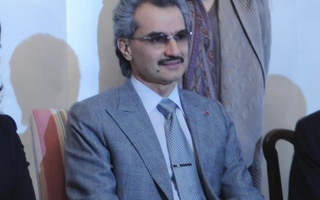The Department of Near Eastern Languages and Civilizations is discussing the creation of a Modern Middle Eastern Studies track within the concentration, following a similar program introduced within the secondary field in September.
The consideration of a new track that focuses on contemporary issues is a response to what department administrators see as an increase in student interest in the subject.
“The bulk of our concentrators and secondary field students want [to study] the modern Middle East,” said NELC Director of Undergraduate Studies Peter B. Machinist ’66.
This past fall, about 15 undergraduates enrolled in the gateway course for the newly-introduced Modern Middle Eastern Studies secondary field.
“It was three times as many as I had expected,” said lecturer Susan M. Kahn, the course’s instructor.
Despite this high interest, there is currently no defined program within the concentration for students interested in contemporary Arab issues.
“Harvard has a Center for Middle Eastern Studies where you can take a masters program or study for a Ph.D.,” said NELC Department Chair Ali S. Asani ’77. “Why can’t you take it as an undergraduate?”
Asani said that department faculty members agree that there is a need for a new concentration track, but its form and structure have yet to be determined.
While Asani said he hopes the plans will be completed by the end of this academic year, the logistics of planning a new undergraduate program are complicated.
“The institutional structures have not been in place,” Asani continued. “Whenever you mount an undergraduate major, you have to make sure that there are special resources for undergraduates, such as making sure they have advisers.”
Estimating the number of students interested in pursuing this proposed track is difficult, Asani said, because undergraduates can wait until their senior year to declare a secondary field.
He also said that it is “hard to predict” the kinds of students who enter the Modern Middle Eastern Studies secondary field, saying that it has attracted pre-meds and economics concentrators alike.
A unifying thread among students in the secondary field is experience with a Middle Eastern language, according to Asani. “It’s quite easy to build up a secondary, especially if you’ve studied the language.”
Government concentrator Rebecca K. Gilmore ’12, who began pursuing a secondary in NELC before the Modern Middle Eastern Studies track was added, followed this approach.
Gilmore, who plans to work in Middle Eastern foreign policy, said that she hopes for more “cross-disciplinary courses” about contemporary Middle Eastern politics.
“I think that there could be more interest if there were more course offerings,” Gilmore said.
—Staff writer Nikita Kansra can be reached at nkansra01@college.harvard.edu.
—Staff writer Sabrina A. Mohamed can be reached at smohamed@college.harvard.edu.
Read more in News
First Woman Tapped To Head PBHARecommended Articles
-
Exposing the Risk-taking in Art-makingThis event is the culmination of a months-long attempt to maximize the presence of the arts in Harvard classrooms.
-
 Jubilation Erupts in Harvard Yard As Obama Tells World Osama Bin Laden is Dead
Jubilation Erupts in Harvard Yard As Obama Tells World Osama Bin Laden is Dead -
NELC Expands Degree OptionsThe Department of Near Eastern Languages and Civilizations (NELC) will offer a secondary field in Middle East studies this fall, creating the first undergraduate program focusing exclusively on the study of the modern Middle East.
-
Ali Asani Named Head of Islamic Studies ProgramAs director of the program, which was founded from a gift in 2005, Ali S. Asani ’77 said he hopes to promote innovation in teaching and attract renowned Muslim scholars, making Harvard the leader in all areas of Islamic studies
-
 Saudi Prince Who Funded Harvard Program Visits
Saudi Prince Who Funded Harvard Program Visits -
NELC To Offer Two New Concentration OptionsAfter discussion earlier this spring, the Department of Near Eastern Languages and Civilizations has decided to offer a new concentration track beginning in fall 2012 focused on the history, politics, and cultures of the contemporary Middle East.













